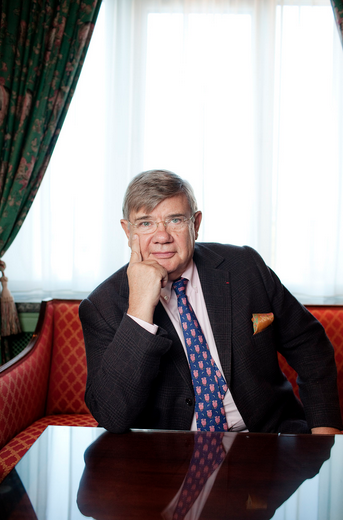The untold story behind history a well-kept secret behind the world-wide icon: Nelson Mandela’s release was a “Plot for Peace.” For the first time, heads of state, generals, diplomats, master spies and anti-apartheid fighters reveal how Africa’s front line states helped end apartheid. The improbable key to Mandela’s prison cell was a mysterious French businessman, dubbed “Monsieur Jacques” in classified correspondence. His trade secret was trust.
We spoke with Jean-Yves Ollivier about the film and his role in helping to free Nelson Mandela and dismantle Apartheid.
How did you come to be the subject of the film Plot For Peace?
I was asked and it took six months for me to accept it, but I finally accepted it.
How long did it take ?
The movie took three and a half years.
The issue of peace is something that you’re really passionate about due to circumstances you’ve endured as well in your home country of Algeria which is admirable. How were you so brave to continue this goal?
You know now it’s going to be a bad habit (chuckles). Unfortunately, I have to follow my passion and that’s my love to make peace everywhere.
How has life in Algeria shaped the efforts you’ve made in Africa?
The problem in Algeria is that one we’re very similar, but in Algeria it was a French Colony so there were one million French citizens and nine million Arab, which was a big difference. In Africa there were 20 million white and 16 million black.
Through your great antics of diplomacy in helping aid peace in South Africa, you are a considered a hero to most. How has this specific honor affected you?
Hero, I don’t like the word hero . I am just a man who went to do something to help others in need.
Has your relationships with political leaders to facilitate the peace offers been difficult in making the efforts absolute?
My business was country commodities like wheat, grain, and oil , and initially it lead to good income tax for those government leaders. It was very profitable to have access to these commodities. And I suppose I was a good trader with very good products. I created a relationship, which allowed me to go to them and say listen, what about Apartheid, how can we handle Apartheid? Because I wasn’t an official or political leader whatsoever, they expressed feelings in a confidential way that led me to go to the other and would you consider what you get in return for helping. I was a broker, I was privileged.
In terms of Plot For Peace being achieved from the Brazzaville Conflict and Nelson Mandela’s release from prison after serving a 27 year sentence and the end to the Apartheid regime, how do you feel your efforts set the stage for a “new” South Africa?
When I arrived in ’81, Mandela was already in jail for 18 years, the idea was set up in 1912, in fact the country was at war, a civil war, and what I have done has allowed the door to be open and legal situations to take place. I contributed to reduce these effects.
How did speaking with Winnie Mandela & Jacques Chirac inspire the goals you wanted to achieve in terms of peace?
Winnie Mandela’s goal was to force the surrender of the white community, on the other hand Chiraq was the opposite. He believed that the serving of the white community by allowing the Russians into South Africa would help the population, but it isn’t serving the rest of the population, so I had to fight for there to be peace and liberation.
What do you want people to become aware of when they conclude the documentary?
I hope the new generation, that there is more to a political party, but that you can do something with your life. It is not automatically clicking yes or no on a computer and hoping you are making the right decisions. You have to go out, you have to take action, but another message, peace takes different avenues to help the cause.
The film opens on October 31.
New York City – Village East Cinema
Washington DC – Angelika Pop-Up / Union Market & Angelika Film Center & Cafe Mosaic
-Breanna Robinson



